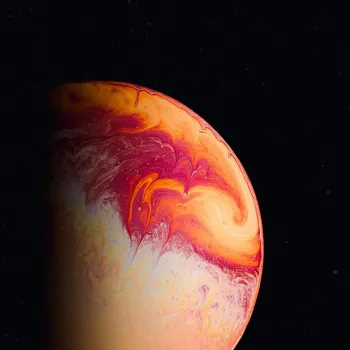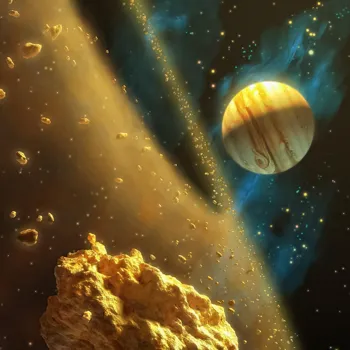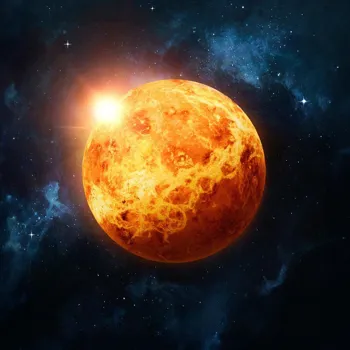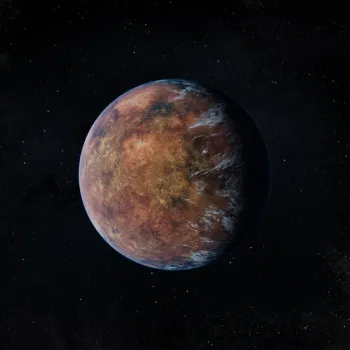Unveiling 7 Game-Changing Discoveries About Exoplanets! Dive into a universe of possibilities beyond Earth
Incredible Discoveries About Exoplanets That Could Change Our Understanding of Life

Space discoveries
of exoplanets revolutionize understanding of the universe
Folks, space is buzzing with excitement! Scientists have been working tirelessly, peering through powerful telescopes, and they've stumbled upon some truly mind-blowing discoveries about exoplanets – planets orbiting stars other than our own Sun.

These findings aren't just cool; they're potentially game-changers in our quest to understand life beyond Earth. Forget what you thought you knew, because the universe is proving to be far more diverse and astonishing than we ever imagined.
Buckle up, because we're about to dive into seven incredible revelations that might just rewrite the textbooks.
Exoplanets with dense atmospheres full of water vapor hold potential for unique life forms
First off, we have the discovery of exoplanets with surprisingly dense atmospheres packed with water vapor. These "water worlds," as some are calling them, are shrouded in thick clouds, creating a greenhouse effect that traps heat. The implications are huge.

While liquid water is considered essential for life as we know it, the presence of abundant water vapor suggests these planets have complex hydrological cycles and potentially vast oceans beneath those cloudy skies.
Think of possibilities for unique life forms, adapted to thrive in these humid environments.
Detection of complex organic molecules in exoplanet atmospheres sparks hope for life
Next up is the detection of complex organic molecules in exoplanet atmospheres. We're not talking about simple compounds like methane; these discoveries include more intricate molecules, the building blocks of life.

Finding organic molecules doesn't automatically mean life exists but it certainly raises some eyebrows. These molecules, essential for forming complex biological systems, could be formed through non-biological processes, but their discovery offers hope that life is present.
Could these organic molecules be hints towards life, or just random reactions that happened?
Red dwarf exoplanets may support life with magnetic atmosphere
The third discovery concerns exoplanets orbiting red dwarf stars which were previously deemed unfriendly to life due to frequent flares. Recent researches hint at planets around red dwarfs possessing strong magnetic atmosphere, shielding them from radiation, making conditions suitable of life.

This greatly expands the total number of planets which are inhabitable and can foster life. This protective layer could change calculations and pave the path to find life that is suitable for red dwarf stars.
Tidally locked exoplanets maintain consistent temperatures, enabling life on both sides
Fourth, we have the revelation of tidally locked exoplanets which maintain consistent temperatures across the day and night. These exoplanets have one side constantly facing their star and one side cast in permanent darkness.
Recent studies have shown winds play significant role and facilitate temperature distribution which creates an even climate. This allows life on both the day and the night side of that tidal exoplanet.
Exoplanet cores vary in composition, impacting geology
Number five is the surprising diversity in the compositions of exoplanet cores. Scientists initially thought that most rocky exoplanets would have cores primarily made of iron, similar to Earth.

However, recent observations show that some exoplanets have cores made of lighter elements, such as magnesium and silicon. This altered chemical composition affects the mantle and crust as well. This opens the doors for unique geological processes and environments which are suitable for life.
Detection of biosignatures in exoplanet atmospheres revolutionizes our perception of life
Sixth discovery is the detection of biosignatures, which are gases produced by life, in exoplanet atmospheres. Although we haven't found a definitive biosignature yet, scientists are getting better at spotting potential candidates.

Finding a biosignature is like finding a calling card from an alien civilization. Imagine that - directly communicating to an extraterrestrial. It's a long shot, but they could be out their waiting for us. This is revolutionizing our perception of life.
Exomoons may host life, impacting life discovery on exoplanets
Seventh we have exomoons which are moons orbiting an exoplanet like our Earth's Moon. These moons are huge and can be potentially inhabitable. This opens up the doors for thousands of planets which can support life in the moon itself and not the planet.

Scientists are finding more exomoons and this will greatly affect the chances of finding life. Discovering water or any life element on the moons is considered as a great achievement and is being researched heavily throughout the globe.
AI Generated Content. Glance/InMobi shall have no liability for the content













